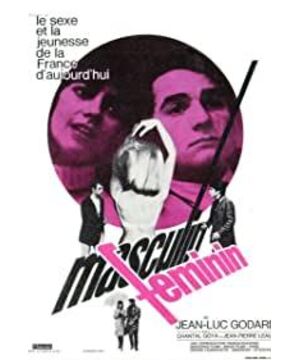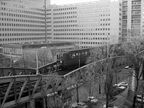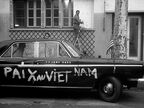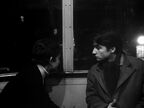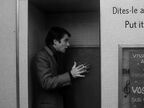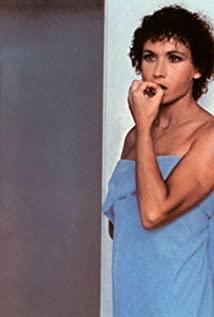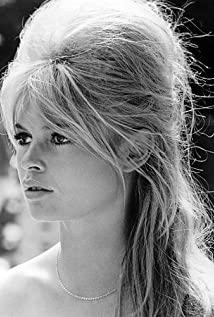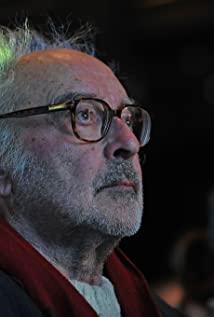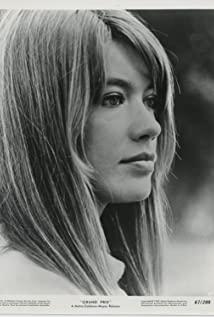This is a film with a strong personal quality to Godard.
1. Opposites: Male and Female
The content is Godard's pale cry for the wave of capitalism: the hero Paul represents a radical communist, seeking meaning, seeking a solid existence, love, tight fitting and social justice (?); the heroine thinks that Madeleine is a commodity A symbol of economy, sweet, outward-looking, flirtatious, fickle and full of lies. On the surface, it seems to be the opposition between men and women, but in fact it is a contradiction between the two ideologies.
This opposition is established from the very beginning of the film: Paul's close-up and nihilistic narration, and then a close-up of Madeleine, whose question and Paul's answer are incompatible and one-way: The life in the barracks in Paul's mouth is "the life of modern people" without time and freedom, and the heroine does not take it seriously; in the same way, in the second dialogue between Paul and Madeleine in the movie, Madeleine never stops dressing up. , while the male emotion appears substantial and heavy: one side of the shot is a heavy desire for love and sex, and the other side is a floating energy, a shallow answer, and repetitive actions. Opposing the "heavy" of men to the "lightness" of women is also the "heavy" of Marxism against the "lightness" of capitalism. In the second half of the film, this separation and opposition are reproduced in the dialogue of another pair of men and women, which is both a echo and a metaphor for an endless cycle.
In the two male confession scenes, women's performances were aided by external objects—dressing and eating apples, which were used to strengthen the superficial symbolic features of women in the film. The director portrays men as tragedies who seek meaning in the nihilistic wave of capitalism, and women as trend-setters and shallow viewers.
It is worth noting that there are several couples in the background of the film, the woman who killed her husband at the beginning, the conflict between a prostitute and a German man, although all of them use the role of the background board to make the film universal and realistic, and also add irony and harmony. Absurdity, it implicitly emphasizes the opposition between male and female.
In addition, several killings and deaths in the film also metaphorize the tragic fate of men (Marxism). The director never renders its tragedy emotionally, but the unexpected sudden death and dangerous birth allude to the chaos in modern society, the sense of wandering, and the fate of the duckweed-like city crowd. For the topic of death that appeared almost as a joke, the director did not choose to directly render death, but started the process of death with calm shots or dialogues - life is not important, and death is also a dispensable thing. Life and death no longer have meaning, all meaning is gone. Interestingly, the subjects of death in the film are men in family life, anti-war people, and male protagonists - people who take "love as the center of the world".
2. Symbols of language
Godard's film is rich in content, the film is full of anti-war, sex, democracy, lies, capitalism, commodities, pop culture and other themes. He mentions the dismantling of words and the referencing of symbols several times: masculin is dismantled into a mask and ass, while feminin is nothing (conversation between two men in a laundromat). At the end of the film, feminin is split into fin, which means the end. In a chat between the male and female protagonists, different kinds of words for "ass" were mentioned. It's abusive and philosophical.
The film uses a large number of monologues, sometimes poetic, sometimes dramatic, with intertitles that appear as the author, giving the film a strong sense of text. In the content of the film, anti-war slogans and Paul's graffiti on the toilet door also appeared, further combining text and images into one dimension. It is a very successful film literary work.
3. Chaos in the consumer society
Not only the heroine Madeleine is a character symbol of the commodity society, but also the pessimistic imagination of electronic devices for future life, game halls, street recording studios, pornographic movies and other colorful modern urban landscapes. Absurd, meaning gone; fast, unpredictable, full of brisk and fickle moments. It is colorful and empty. Madeleine is particularly impressive in this studio segment, where in one room the finished vocals and accompaniment are heard, while in the other, her singing is shrill and harsh in the quiet room, surrounded by There seemed to be nothing, and she was dazed—isolated in the emptiness, while Paul stared at her.
Godard's critique of the consumer society is obvious. His fragmented narrative, documentary-style footage, numerous facial close-ups and interspersed urban landscapes give this personal story a sense of social realism. He depicts Paris in the 1960s, like an endless river, with both material splendor and heavy disillusionment. Death becomes easy and survival becomes superficial. Poetry and hedonism collide, Marxism and Coca-Cola coexist, what kind of world is this? But in the end, Paul died, whether it was suicide or an accident. Paul's (almost inevitable) death, the birth of the "Pepsi Generation," heralded the end of the battle between "Marxism" and late capitalism.
View more about Masculin Féminin reviews


